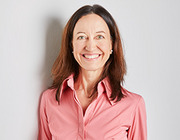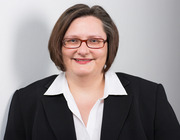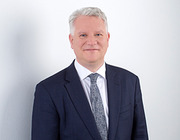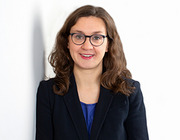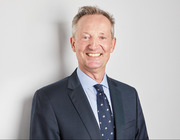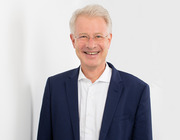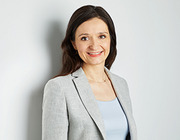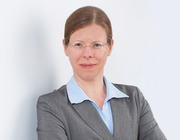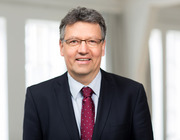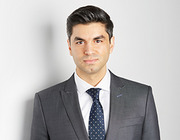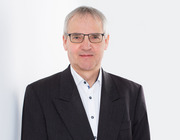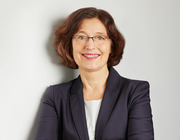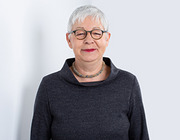Here you will find contact details for our experts, who can provide answers to, or an assessment of, the key issues currently impacting politics, business and civil society. This is also where we have brought together our latest articles on the war against Ukraine.
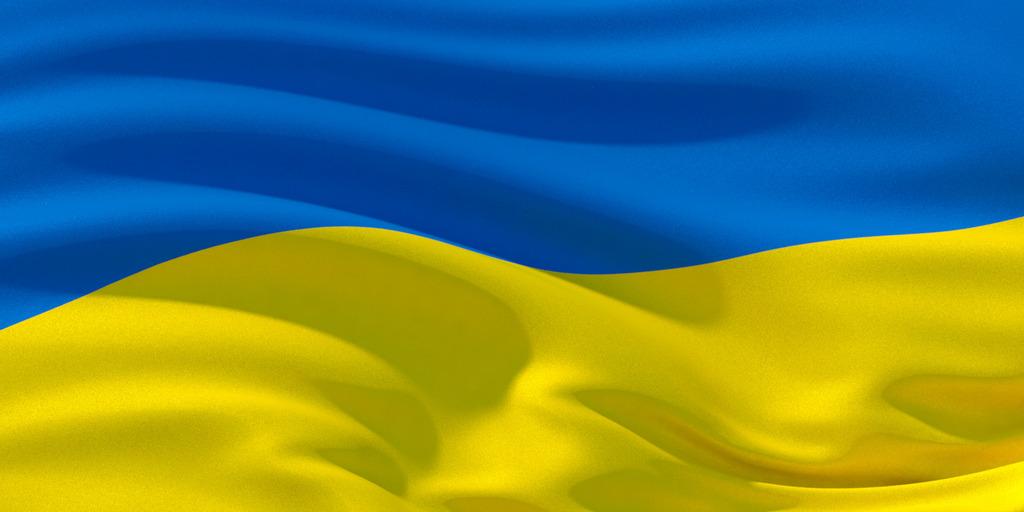
© Maksym Kapliuk - stock.adobe.com
War against Ukraine
Russia’s attack on Ukraine has changed the European peace order and world politics. Ukraine and its citizens are facing an existential threat, the country is fighting for its very survival. Peace and freedom are at stake for all of Europe. For many years, the Bertelsmann Stiftung has been using its programs to promote a strong Europe as well as freedom and democracy. Our aim is to offer guidance, all the more so in these difficult times.
Content
OUR EXPERTS
- Miriam Kosmehl, Expert for Central and Eastern Europe
- Sabine Donner, Expert for Democracy and Governance
- Mark Fischer, Expert for Transatlantic Relations
- Katharina Gnath, Expert for European Economic and Financial Policy
- Christian Hanelt, Expert for the Near and Middle East
- Hauke Hartmann, Expert for Democracy and Governance
- Isabell Hoffmann, Expert for European Public Opinion
- Cora Jungbluth, Expert for China and Trade Policy
- Ulrich Kober, Expert for Migration and Integration
- Mehrdad Mehregani, Expert for Migration and Integration
- Thieß Petersen, Economic Expert
- Claudia Walther, Expert for Migration
- Stefani Weiss, Expert for International Relations
Details for reaching our experts can be found above, under "Contacts".
OUR ANALYSES
Developments in Russia and Ukraine
How do the citizens of the European Union feel about Ukraine's accession? How willing are they to accept refugees? And how do they feel about arms deliveries? Eupinions, the Bertelsmann Stiftung's opinion research tool, asked 12,000 EU citizens precisely these questions. The Bertelsmann Stiftung's Europe experts Isabell Hoffmann and Hardy Schilgen analyze the answers in their article for the GED blog.
For many years, the European Union has sought to expand mutually fruitful relations with states in Africa. The war in Ukraine poses new challenges to these efforts. On the one hand, numerous countries are dependent on wheat imports from Ukraine and Russia; on the other, there is concern among African countries that the EU could neglect its commitments because the war is tying up attention and financial resources. What the EU should do, why Russia is also getting in its way on the African continent, is described by EU experts Christian Hanelt and Vasileios Chronas in their article for Global & European Dynamics - (globaleurope.eu)
The sanctions are aimed at Russia - but China is also indirectly affected by its balancing act in its relationship with Russia. China expert Cora Jungbluth describes in two articles how Beijing is dealing with this. She identifies five fields of action: high technology, the financial system, energy, the military and - as an overarching theme - a new Chinese world order. At the same time, in her article for Global & European Dynamics - (globaleurope.eu), she shows what options the European Union has in this environment.
Germany has taken a clear position on the Ukraine conflict later than many other NATO and EU countries. Its hesitation drew criticism from its Western allies. But with the onset of the Russian attack on Ukraine, the new German government has made a fundamental change of course that marks a hard break with Germany's foreign and security policy line since the end of the Cold War. In a new article on globaleurope.eu, our transatlantic experts Mark Fischer and Peter Walkenhorst analyze the background to Germany's change of course and its significance for the European and transatlantic security architecture.
Never before has a country been subjected to such oppressive sanctions as Russia after its attack on Ukraine. There are 5,000 measures designed to dry up Putin's war chest, to put pressure on the oligarchs, and to make it clear to the population through forced consumption restrictions that their government is waging an unjustified war. But are the sanctions working? Are they leading the country into recession? Can they stop Putin? In his article, our Europe expert Thomas Schwab looks at past failed sanctions to show where the pitfalls lie.
What effect will the sanctions already imposed on Russia have? Which other sanctions might follow? And what would the consequences be? Those are the questions addressed by Katharina Gnath, an expert on the European economy, in “What are the economic implications for the Russian and European economies? The Russian war against Ukraine,” her blog post for Global & European Dynamics. Some consequences are already visible.
For a long time, many economists have sung the praises of the positive effects of globalization - and rightly so. But here, too, the war in Ukraine will lead to a rethink. What long-term effects the Russian attack will have, and how trade policy and supply chains will change, are described by Europe expert Cora Jungbluth and economist Thieß Petersen. "Five consequences for global economic relations" is the title of their article for Global & European Dynamics - (globaleurope.eu).
Miriam Kosmehl lived for several years in Russia and then in Ukraine before joining the Bertelsmann Stiftung as an expert on Eastern Europe. Many of her former colleagues and friends still live there, and some have been forced to flee. That is why her article “Europe’s Divided Security” is probably the most personal she has ever written. In it, she calls for Europe to stand together and for national egoisms to finally be put aside. “That is the least we can do,” she writes.
In his post for the blog Global & European Dynamics, political consultant Paul A. Smith analyzes how the sanctions against Russia will play out, predicting that Russia will be forced to move closer to China. That is where Putin will have to go to acquire the high tech that the West will no longer supply him with following the invasion of Ukraine, Smith writes. Russia will become more dependent, he notes, while China will become more powerful. This is a very special power game, Smith says in “Wake Up! We’re Playing Mahjong.”
In a virtual conference on March 16, economic experts Katharina Gnath (Bertelsmann Stiftung), Julia Friedlander (C. Boyden Gray Senior Fellow & Director), John Springfeld (Deputy Director of the Centre for European Reform in London) and Nils Redeker (Policy Fellow at the Jacques Delors Centre of the Hertie School in Berlin) explored the economic consequences of sanctions against Russia. Europe is not yet ready to ban energy imports from Russia, he said. In the article on Global & European Dynamics - (globaleurope.eu), they explain why an energy embargo will lead to an economic downturn in Europe.
What will the ramifications be of Russia’s exclusion from SWIFT, the international payment system? Which additional sanctions, especially against Russia’s central bank, will be necessary to hit back at Vladimir Putin and his network? Those are the questions explored by Gunter Deuber for the Bertelsmann Stiftung as chief economist at Raiffeisen Bank International in Vienna. For Deuber, weakening the Russian central bank is only one side of the coin. Just as important is supporting Ukraine’s central bank, thereby ensuring it remains solvent and able to take action.
The Bertelsmann Stiftung’s Transformation Index (BTI) examines the quality of democracy in 137 developing and transition countries. To put it simply, things are not looking good: For the first time, there are more autocracies than democracies. The Putin Model, as it is often called, is setting a precedent. There is also good news, however, since civil society is often the last bastion of resistance. The latest proof: Even in Russia, people are taking to the streets to demonstrate for peace. Here you will find the 2022 BTI country reports for Russia and Ukraine.
Russia's relationship with the West and reforms in Ukraine
In Russia's war against Ukraine, the Russian Orthodox Church lacks any distance from the Kremlin. Church leader Cyril I provides the ideological armor for the attackers instead of taking the side of the victims. Why is that? And how does the Russian population view the role of the church? Detlef Pollack, professor of the sociology of religion at the Westphalian Wilhelms University in Münster, explores these questions in his contribution to the blog Vielfalt leben - Gesellschaft gestalten.
Immediately after the Russian attack began, Ukrainian President Volodymyr Zelensky called on Europe's political elite to admit his country to the EU. The push has so far elicited mixed reactions. But it forces the EU to take a hard look at itself. After all, Ukrainians are currently defending not only their homeland, but also the fundamental European values of freedom and democracy. In a new article on globaleurope.eu, our Europe experts Jake Benford and Miriam Kosmehl argue that new forms of sectoral connectivity could be a way to give Ukraine a European perspective.
Already, the economic dislocations of the pandemic have sparked discussions within the European Union about more fiscal space for member states. The economic consequences of the Ukraine war, particularly rising energy prices and shortages of key raw materials, now give the debate even greater urgency. As our Europe team colleague Lucas Carvalho explains on globaleurope.eu, the core issue is whether the debt rules set out in the Maastricht criteria 30 years ago are still relevant in light of the current challenges. He also shows what options are open to the EU for reform.
The war and the capping of Russian gas and oil imports calls for urgent action in the EU. On March 8, 2022, the EU Commission published its proposal to decouple the EU from Russian energy imports. Alternatives are being explored in the Middle East and North Africa. In a new blog post on globaleurope.de, our Middle East expert Christian Hanelt and Vasileios Chronas from our Europe program discuss various options for making the EU less dependent on Russian energy imports through cooperation with states in the MENA region.
The crisis has forcefully put the question of future energy supplies for the member countries of the European Union on the agenda. Many EU states, and Germany in particular, are currently feverishly searching for ways out of their dependence on gas, oil and coal from Russia. But in addition to the difficult and probably expensive search for alternative suppliers of fossil fuels, Europe should focus even more on the expansion of renewable energy sources, writes Europe expert Nathan Crist in a new article on globaleurope.eu. After all, the consistent implementation of Europe's "green" transformation offers the best long-term prospects for the continent's extensive energy independence.
In a background paper for the 2021 Trilogue Salzburg, the Bertelsmann Stiftung’s experts examine Russia’s difficult relationship with the West. For many years, attitudes on the Russian side fluctuated between admiration, mysticism and an insistence on distancing the country from the West. Many of these aspects – coupled with nostalgia for a purported past as a great power and the conscious decision to engage in imperial behavior – are still hallmarks of Russian politics. The complete paper can be found here.
Our experts have addressed Ukraine’s development in several publications. The war was not yet on the horizon when the analyses were written, but those wanting to better understand the country and its citizens can still benefit from their insights. The difficulties hindering reform of the judicial systems in Ukraine and Moldova were the subject of last year’s analysis. What kind of support do judicial systems need? What role does an active civil society play in promoting reform? Which aspects matter most? Answers to those questions are provided by the study "Why Is Progress Towards the Rule of Law So Challenging?" from 2021. A summary introduction can be found here.
"Ukraine between reform, crisis and war" – that describes the situation in 2019. Back then, the war was "only" the one waged by separatists in the country’s east. The study "Dezentralisierungsreformen in der Ukraine 2014-2019” ("Ukraine’s Decentralization Reforms Since 2014") describes the pace of reform Ukraine adopted after the weeks-long protests in Maidan Square. The direction the country took provoked Russia even back then, the authors note, and the annexation of Crimea was Putin’s reaction to the “Revolution of Dignity” in 2013/2014. The study focuses on the successful transformation that took place in the fundamental area of administrative reform from 2014 to 2019.
Russia's influence on the EU’s neighborhood
Putin's invasion of Ukraine also poses new tests for the European Union's relationship with the countries on the southern and eastern shores of the Mediterranean, explains our Middle East expert Christian Hanelt on globaleurope.eu. With regard to negotiations on a new nuclear agreement with Iran, humanitarian aid for Syria and a solution to the conflicts in Mali and Libya, Russia's considerable influence in these regions is proving to be an obstacle to political progress. Economically, in turn, high energy prices and reduced wheat supplies from Russia and Ukraine threaten to exacerbate the tense supply situation in some North African countries. This is putting pressure on the EU to increase financial support for this region. Which partners the Europeans should turn to in this situation is also part of Christian Hanelt's analysis.
A group of Bertelsmann Stiftung experts and several partners published a three-part series on "Antagonisms in the EU’s Neighborhood" beginning in 2018. The series looked at the impact policies implemented by "key states" including Russia were having on the European Union’s eastern and southern neighborhood.
Having good relations with neighbors is a central concern of German and European foreign policy. Through its Neighbourhood Policy, the EU aims to promote stability and prosperity among its neighbors to the east and south. Yet Russia, Turkey, Iran and Saudi Arabia also have an influence on the common neighborhood. In the first publication in the "Antagonisms" series, country experts analyze the policies of these four key states.
The second analysis in the series, published in 2019, focuses on the civil war in Syria. The experts examine which role Russia, Turkey, Iran, Saudi Arabia, the US and Israel play in the conflict. At the same time, they discuss which role the European Union can play. The military intervention by Russia and Iran in Syria’s civil war was a crucial factor leading six million Syrians to flee to neighboring countries in the Middle East. In 2015 and 2016, 1.1 million Syrian refugees arrived in the EU.
The region around the Black and Caspian seas is the focus of the third publication. Russia in particular has used a "policy of small steps" to expand its influence in this important area, taking actions there that have reverberated far beyond the region itself. In addition, China and Turkey have continually extended their influence, something that applies to a lesser degree to Iran and Saudi Arabia. In the study, the experts describe how these key states interact, which motives guide their actions and how Berlin and Brussels can affirm European interests.
The European Union’s stability is always influenced by its neighbors. That is why in 2020 the Bertelsmann Stiftung study "Combatting and Preventing Corruption in Armenia, Azerbaijan and Georgia" focused on the EU’s eastern neighborhood in particular. In addition to the countries covered in the study, this neighborhood includes Belarus, Moldova and Ukraine. The publication analyzes how prevalent corruption is in these states – and how it can be overcome.
Global political dimension of the conflict
The changed geopolitical situation resulting from the Russian attack on Ukraine is forcing Germany to redefine its self-image on the world stage. While the Federal Republic had largely settled into a foreign policy comfort zone in past decades, the largest and wealthiest EU member is now expected by an increasing number of partners from the Western world to assume its historical responsibility and take a clear leadership role in the response to Russian aggression. While there is a growing willingness to do so, as reflected in surveys of the German population, the German government is still struggling to shed its long-practiced and also historically justified reticence. Our transatlantic expert Mark Fischer explains in a new blog post on globaleurope.eu why the world should not wait for Germany and what the responsibility of the Federal Republic is in concrete terms.
Under Xi Jinping and Vladimir Putin, China and Russia have moved closer together on the international stage in recent years. But Vladimir Putin's war of aggression against Ukraine presents the People's Republic with a dilemma: How should Beijing continue to support the Russian president without further straining relations with the West? China's extremely vague or even contradictory reactions to the war, which they refer to only as the "Ukraine situation," reflect a diplomatic balancing act whose outcome is highly uncertain. Pressure is mounting daily on Xi Jinping, who is seeking to secure his third term as state and party leader at the 20th Party Congress of the Chinese Communist Party in early November. In a new blog post on globaleurope.eu, our China expert Cora Jungbluth shows why the People's Republic is having such a hard time taking a position on the Ukraine conflict.
Election and World Cup in Russia in 2018
Following the invasion of Ukraine, the governing bodies of European and world soccer suspended Russia from all competitions. At one time, however, Russia hosted the World Cup. German fans do not have particularly fond memories of the 2018 championship, since their home team’s performance was nothing short of embarrassing. In two reports, our experts used the occasion of the World Cup to discuss Russian nationalism. The first is called "The Sporty Way to Spur Nationalism."
In the second report, historian and journalist Irina Shcherbakova provided insight into the situation in her country. Memorial, the organization that Shcherbakova is affiliated with, currently faces prosecution and closure. In today’s Russia, coming to terms with the country’s past and Stalin’s actions is seen as a threat to the country’s leadership.
Vladimir Putin had nothing to fear as he faced re-election at the beginning of 2018. He had no serious challengers. Boris Nemtsov, one of his critics, had been killed. Another Kremlin opponent, Aleksei Navalny, who had yet to become well known, was prohibited from running due to a questionable court ruling. Our experts Miriam Kosmehl and Sabine Donner analyzed the situation in Russia in the weeks before the election.
